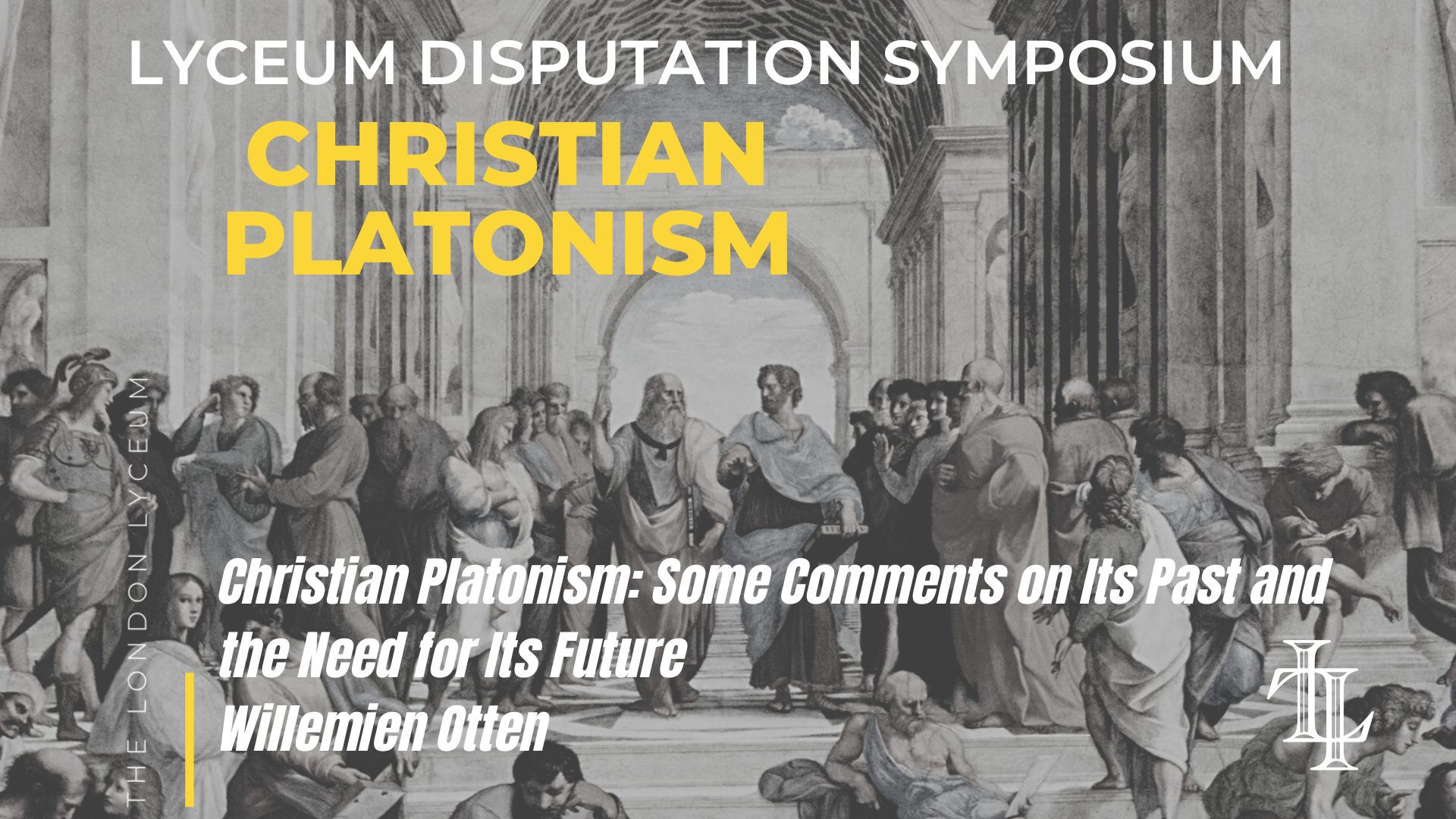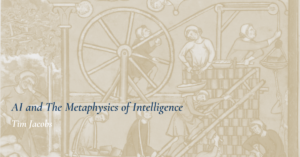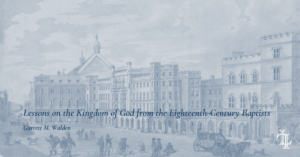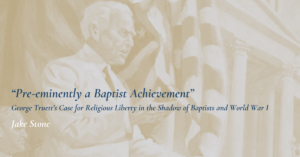Editor’s Note: This is part 2 in our Lyceum Disputation series considering the nature and potential necessity of contemporary “Christian Platonism” as exemplified here and here. Stay tuned for further installments. As with all our work, the London Lyceum publishes a range of viewpoints to encourage thinking.
The best way to summarize my view on Christian Platonism is perhaps to say that, while I consider Christianity and Platonism separate systems of thought and judge them on different grounds, Christian Platonism is the theological tradition I have found myself most naturally embracing. But although it is the tradition I know best and dispositionally treasure most, I do not see it by definition as the strongest intellectual position, insofar as I can see myself endorsing other positions as well; I will return to that point at the end of my comments.
To commence with some comments related to my historical theological expertise, it is important for me to say that I do not see Christian Platonism as the natural umbrella under which to subsume the entire premodern Christian tradition. I reference this point because Craig Carter’s recent Credo essays on Christian Platonism lay out a set of compelling reasons for its importance that all reference its premodern authority–it is part of the Augustinian heritage; it is inextricably bound up with and inseparable from Nicene and Chalcedonian orthodoxy; and it forms the broader context for the scholastic realism of Thomism. While I am enamored of Christian Platonism and a medievalist to boot, I am not convinced that premodernity has all the answers. Nor that it has always seen the Christian-Platonic position dominate.
Let me now take on Carter’s first and third points in reverse order. However flexibly one can interpret Christian Platonism, I am quite convinced that Thomas Aquinas is at heart an Aristotelian thinker, not a Platonist, notwithstanding the fact that there is a good deal of Platonism in Thomas, mediated especially through the Dionysian tradition. This prompts me to say that I consider Christian Aristotelianism also a viable theological position, even if I am not as disposed to it. I think in hindsight that Christian Platonism has always resonated more with me than Christian Aristotelianism due to its inherent attunement to exegesis. At fault is probably my Protestant upbringing that has instilled in me a deep sense that Christian theology cannot vibrantly be sustained when not grafted onto scriptural roots. I have always considered the medieval Aristotelian position more foreign to the exegetical tradition as it had organically developed over time.
Continuing with the theme of attunement to scripture, let’s evaluate the position of Augustine now, the first arrow in Carter’s quiver in defense of Christian Platonism. There is no doubt that Augustine is a Christian Platonist. But long before him Origen of Alexandria was perhaps a more consequential one. As one of the first great Christian intellectuals he found himself at a cultural crossroads where there was both interest in and room for communicating with multiple audiences. Platonism offered the Christian Origen a way to do so through allegorization. Through allegorical exegesis Origen could make himself philosophically credible to non-Christian readers while keeping his intellectualism within the fold of a Christian community collectively gathered around the scriptures. Platonism, in other words, allowed for the stratification of the Christian community: even as intellectuals could probe the scriptures more deeply, the texts lost none of their validity and authority when read on a shallower level. I have always regarded this multi-level reading practice not as elitist but as a way to maintain the unity of the community in times of expansive growth. As Christianity drew a more diverse group of followers, interaction with the intellectual movements of the day was needed, especially since Christianity did not itself constitute a philosophical worldview. With its guiding principles of the One, Nous/Mind, and the Soul, Platonism gave Christians what I have called “the X-ray of a unitive cosmic vision,” offering them an attractive holistic view against the background of which scriptural interconnections of more or less complexity could meaningfully light up.
The Origenian tradition of allegorical exegesis remained dominant in the West through Ambrose, whose mastery of it swayed Augustine. But Augustine turned out to be quite a different Christian Platonist in that he chose to foreground the literal text of scripture over the allegorical one; at the same time he made the study of scripture the goal of all erudition, sacred and secular. This has led me to call Augustine the instigator of a biblical revolution whose paradigm would frame Western medieval thought through at least the twelfth century, perhaps even until Aquinas. Since Augustine shaped medieval Christian thought in ways that Origen never gained cultural traction, I tend to see Augustine as a Christian thinker, one whose profile is certainly Platonic but not to the extent that the merger of Christianity and Platonism shaped his agenda in ways that it did for Origen, Gregory of Nyssa or Dionysius the Areopagite. Augustine’s On Christian Teaching famously distinguishes between things (res) and signs (signa), considering the Bible a set of privileged signs. By pointing us steadfastly to “the thing” (res), by which he supremely refers to the trinitarian God, he instills in us the idea of hermeneutics as a lifelong journey, involving constant choices not only between things and signs but in their aftermath also between right and wrong decisions, ones that help us move forward, that is, towards God, and ones that hold us back and point away from God. Given the Augustinian notion of life as an individual hermeneutical quest, or a collective pilgrimage as sketched out in his magisterial City of God, Platonic motifs such as the tension between the One and the many or the visible and the invisible, the spiritual and the material, begin to take a back seat, as the story of scripture itself now takes over, its arc stretching from Genesis to Revelation. Meanwhile, the interpretive freedom Augustine accords exegetes, whom he also liberates from restrictive Greco-Roman stylistic requirements, was astounding: any style will do, and any interpretation that promotes the love of God and neighbor will stand, while any interpretation that pushes the opposite, placing cupidity over love, must be rejected.
As I see it Augustine’s biblical revolution set the agenda for the next seven centuries, for the Christian intellectual texts produced in the early medieval era would most often be biblical commentaries. But Augustine did more than holding up the Bible as a magnetic privileged source. With his remarkable choice for signa (signs) over verba (words), subsuming the latter under the former, he ventured beyond exegesis into the natural world. Biblical exegesis could thus merge rather seamlessly with the reading of creation, as medieval thinkers regarded natural and scriptural signs as mutually legible, establishing a unique medieval balance of nature and scripture. To the extent that Augustine does not let go of Origen’s desire for cosmological unitive vision, he has indeed remained a Platonist but one whose Platonism has been radically swallowed up by and elevated into his comprehensive Christian theology.
Seeing Augustine more as a Christian thinker with a Platonic background than a Christian Platonist à la Origen, and thereby indirectly questioning the usefulness of Christian Platonism as an umbrella term, which I realize should equally apply to Christian Aristotelianism, I clearly lean towards seeing Augustine, Aquinas, and other theologians primarily as Christian thinkers in their own right. Their engagement of respectively Platonism and Aristotelianism can be a helpful tool in understanding them but is at the end of the day not that instructive. This comment may out me a historical theologian who is not all that convinced that knowledge of beginnings can explain everything, as the development of Christian thought throughout different eras shows it to be flexible and vital in original and creative ways. There is often a hesitancy within the current academy, I have noticed, to accept that Christianity has its own system of thought, as if Platonism and Aristotelian must endow it with an intellectual bona fides that it would otherwise lack. But surveying, studying, and scrutinizing the traditio fidei by turning only to Christian-Platonic and Christian-Aristotelian thought leaves out many other important and relevant sources, such as the wealth of texts written by late medieval women mystics that cannot be decoded in that way and yet form an important part of the medieval theological legacy, one that seems to have more relevance today than the texts of university masters linked with the late medieval nominalist and realist debates. In short, seeing Augustine and Aquinas as Christian thinkers allows us to make useful connections with these medieval women mystics, while seeing Augustine and Aquinas as first and foremost Christian Platonic or Christian Aristotelian thinkers prevents us from doing so.
I am now left with the question whether Nicene and Chalcedonian orthodoxy depends on Christian Platonism, as Carter submits. This gets us to the heart of what is at stake in regarding Christian Platonism as vital for the defense of Christian identity and it is good to spend some words on that. Let me first address the origins of Nicene orthodoxy. Having mentioned Origen’s Christian Platonism in the above, in my view Nicene orthodoxy is more precisely unthinkable without Athanasius’ reorganization of Christian-Platonic thought around incarnation. Recent scholarship by Peter Brown a.o. over the last decades has made clear that the body is a key concept in Christian thought as well as practice, whose impact is at times hard to separate. Influenced by desert monasticism, Athanasius reoriented Origen’s intricate Christian-Platonic cosmic story to make it a more soteriologically focused Christological one that was applicable to contemporaneous Christians. Note that Athanasius but also Gregory of Nyssa took it upon themselves to write saints’ lives as well, mindful as they were of the roadblocks that complex philosophizing and theologizing could erect as much as remove. In Augustine it seems we have reached a stage where he can collapse the two approaches, if you will, as he is able to eloquently yet simply articulate the difference between Platonism and Christianity in Confessions 7 by pointing out the latter’s centeredness on the incarnate Christ.
But there is more to the defense of Nicene and Chalcedonian orthodoxy than a mere reliance on antecedent or contemporaneous Christian Platonic thought. Moving again to the Middle Ages, since I already mentioned that I think that theological viability is not only about origins, I want to reference Jaroslav Pelikan’s 1985 Etienne Gilson-lecture called “The Spirit of Medieval Theology,” in which he explains that the early church formulated what was to be believed and the medieval church attempted to explain why it was to be believed. In illustrating the medieval position, he interprets Anselm of Canterbury’s Why God Became Man as actualizing the Nicene creed, insofar as it ends with a confession of “Christ, whom we confess to be divine and human and to have died for us.” Anselm’s treatise is not just about the mechanics of the incarnation, the famous satisfaction theology, but exhibits a direct soteriological purpose. For, Anselm explains to his readers why God became man for us, thereby integrating doctrinal thought with the church’s sacramental life, or the dogma of the person of Christ with the dogma of the work of Christ. There is no doubt that Anselm is also a Christian Platonist, be it by way of Augustine rather than Plato, but his position here has not much to do with such formalities. In fact, my point is again that we miss out on the salient point of his treatise, which Pelikan suggests we read as “the matching of the Chalcedonian doctrine of the person of Christ with the Augustinian doctrine of original sin,” if we focus on its perceived Christian-Platonic underpinnings instead of its amazing content.
Extrapolating from Pelikan, we might say that the defense of Nicene and Chalcedonian orthodoxy depends on the generations following it and, by implication, must depend on every single generation following it. Anselm may have given a brilliant theological defense of it for his Western medieval readers, but he did so as a Christian thinker, not a Christian Platonic one. Whether we want to take recourse to Christian Platonism or Christian Aristotelianism, fact is that theology, or Christian thought more broadly, remains a fragile proposition. Being aware of the difficulties involved, constantly struggling how to best articulate it, is really all we can do. As a Western scholar who quite loves music, permit me a somewhat skewed comparison with classical music. It is very much under siege right now, but to say that we all need to become Bach devotees or adhere stringently to the format of classical symphonies provides no solution. We need to produce Christian thinkers, of whatever stripe, gender, race, or philosophical orientation, who can enlighten faith while speaking to the issues of the day, as Athanasius, Augustine, Anselm, and Aquinas all did. Reliance on Christian Platonism may provide us with cover, or even with armor, but not with a real defense and least of all with a way forward. The viability of any religion depends at least in part on the inspiration and quality of thought of the intellectuals it attracts and produces.
Permit me to close with the following comment. As a medievalist who loves Bach, I have always also been a lover and explorer of modern music to the point of having performed it as a choral singer in my student days. It is easy to love Bach, it is much more difficult to discern which modern music will survive. But we cannot skip that stage of discernment. One of the easy trends that irks me is the recent embrace of “nouvelle théologie” by both Catholic and Protestant scholars. To some extent their agreement is a pleasant ecumenical development. But it is also a joint running for cover. How wonderful to go back to the days of Henri de Lubac, Balthasar, and Jean Daniélou! But as I wrote in the conclusion to my recent book Thinking Nature and the Nature of Thinking. From Eriugena to Emerson (p. 200), the study of “nouvelle theologie” today is at risk of freezing patristic and medieval authors in time, the time of the authors of “nouvelle théologie,” rather than studying them for the internal renewal of the church in our own day, as the generation of De Lubac and colleagues wanted. Given the many religious questions before us, my hope is for a new generation of theologians who will study Christian Platonism and the amazing patristic and medieval legacy but will not hide behind it. Instead, they should mobilize all their intellectual powers to develop vibrant new theologies for this and the coming eras, Platonic, Aristotelian or simply their own.
Author
-
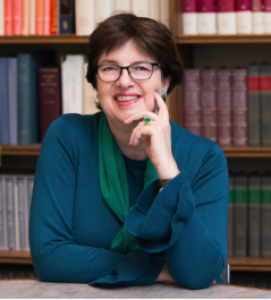
Willemien Otten (PhD, University of Amsterdam) is Dorothy Grant Maclear Professor of Theology and the History of Christianity at the University of Chicago Divinity School and the President of the Society for Eriugenian Studies (SPES). She studies the history of Christianity and Christian thought with a focus on the medieval and the early Christian intellectual tradition, especially in the West, and an emphasis on the continuity of Platonic themes. Her 2020 Etienne Gilson-lecture “Creation and Gender in Eriugena, Hildegard, and Hadewijch,” postponed to 2022 due to Covid, is forthcoming from the Pontifical Institute of Mediaeval Studies Press. Her co-edited volume Religion and Memory addresses how best to conceive the pastness of religion. Her co-edited volume Eriugena and Creation, brings together selected papers on medieval nature. With Editor-in Chief Karla Pollmann, she edited the three-volume Oxford Guide to the Historical Reception of Augustine (430–2000) and with Susan Schreiner she co-edited Augustine Our Contemporary. Examining the Self in Past and Present. Reflecting her interest in natural theology beyond the medieval period, Otten’s latest study Thinking Nature and the Nature of Thinking: From Eriugena to Emerson approaches ideas of nature and human selfhood across a wide array of thinkers, from Augustine to William James and from Maximus the Confessor to Schleiermacher.
View all posts
